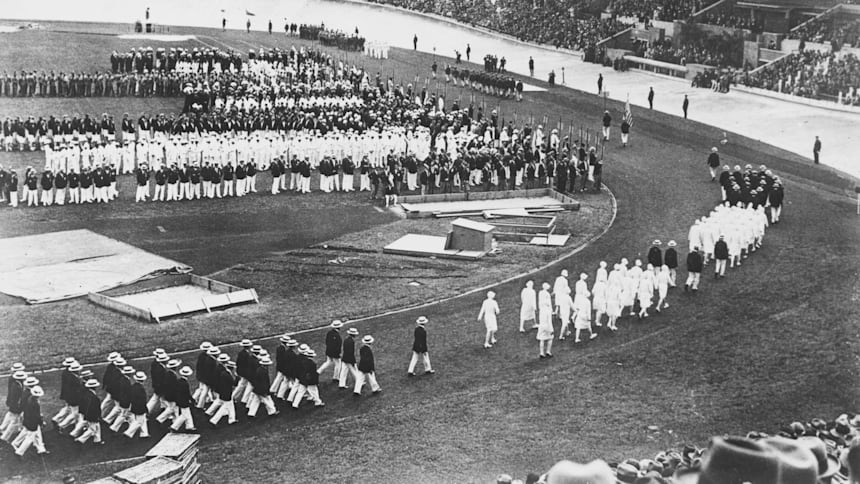Paris: The Unsung Olympic Pioneer

When we think of the Olympics, Athens often comes to mind as the birthplace of the ancient games. However, Paris holds a special place in the modern Olympic story, one that’s often overlooked but deeply significant.
In 1894, the City of Light became the cradle of the modern Olympics. At the Sorbonne University, French aristocrat Pierre de Coubertin chaired the founding congress of the International Olympic Committee, breathing new life into an age-old tradition. Coubertin, born in 1863 and considered the founder of the modern Olympic movement, held a profound belief in the power of sport. His famous words, “For each individual, sport is a possible source for inner improvement,” encapsulate the philosophy that would shape the Olympic spirit for generations to come.
Paris went on to host the Games twice, in 1900 and 1924, leaving an indelible mark on Olympic history. These early Paris Olympics were pivotal in shaping the international character of the Games and advancing Coubertin’s idea of sports as a serious pursuit and a means of personal growth.
The 1900 Games, though somewhat overshadowed by the concurrent World Fair, broke new ground. It was here that women first competed in Olympic events, participating in golf, tennis, sailing, and croquet. The Games also featured some quirky events that didn’t stand the test of time, like artillery firing and long-distance ballooning.
Fast forward to 1924, and Paris once again took center stage. The Colombes stadium, built on a former horse-racing track, hosted the opening ceremony and many events. Today, this historic venue still stands and will serve as the field hockey arena in the upcoming Olympics.
The 1924 Games saw several firsts: the debut of the Olympic motto “Citius, Altius, Fortius” (Faster, Higher, Stronger), the use of a 50-meter swimming pool with painted lanes, and the rise of global sports celebrities thanks to advances in communication.
But perhaps the most enduring legacy of Paris’s Olympic history is found in the city’s sporting infrastructure. La Cipale, a magnificent velodrome in the Bois de Vincennes, has been in continuous use since 1900. It hosted not only cycling but also gymnastics, football, rugby, and even the only Olympic cricket match to date.
As Paris prepares to host the Olympics once more, it’s worth remembering the city’s unique role in shaping the Games we know today. From pioneering women’s participation to establishing the international character of the event, Paris has been more than just a host city – it’s been a true Olympic innovator, embodying Coubertin’s vision of sport as a path to self-improvement.
The ghosts of past Olympians still seem to linger in venues like Colombes and La Cipale. As new athletes prepare to make history in these storied locations, they’ll be joining a rich tapestry of Olympic heritage that’s uniquely Parisian, carrying forward the torch lit by Pierre de Coubertin over a century ago.
Re-reported from the article originally published in BBC.









